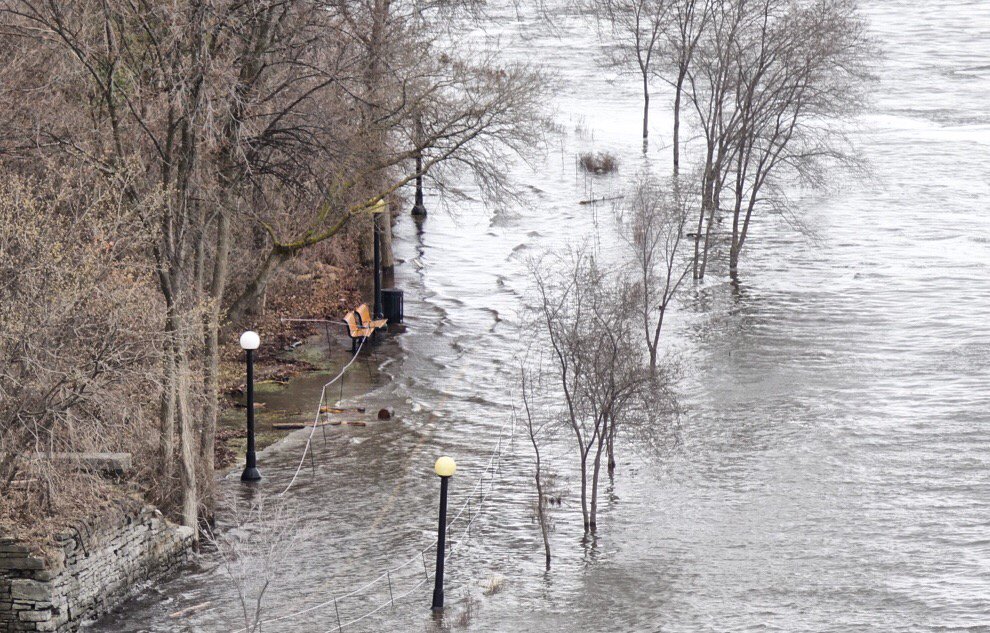Two rivers run through or alongside the City of Ottawa; the Rideau River and the Ottawa River, with the former emptying into the latter. The Ottawa River is long and wide, a powerful river that swells and rises in the spring (and eventually empties into the St.Lawrence River). And that's what it has done this spring, rising higher than it normally does, a result of the spring run-off of melting snow and ice. Great ice pans wash down from the north, floating along the Rideau River until it meets the Ottawa at Rideau Falls. The Ottawa River runs behind and below the Parliament Buildings of Canada, the river separating the Provinces of Quebec and Ontario.
This past Easter week-end, 30 mm of rain fell in the area, raising the height of the Ottawa even more. And all-day rain events have since continued and more is expected in the near future. Yesterday, rain fell steadily and heavily, so we were locked out of our daily ravine walk, following on a perfectly sunny day just the day before. Areas close to the river are now in flood mode, and residents claim the river's rise and resulting floods are the worst they can recall in decades.
 |
| Path alongside the Ottawa River, below Parliament Hill in flood. Photo, Ian Black CBC weatherman |
There are streets that tend to flood in such conditions closer to where we live, as well, but certainly not to the extent that residents of Gatineau in Quebec, just across the Ottawa River from Ontario are now experiencing. The city of Gatineau has been making sandbags available to residents who want to use them to hold back the floods that have engulfed streets and move steadily up driveways toward home basements. People are understandably anxious.
Yet their homes in most cases are built alongside the Ottawa River. In the winter this gives them handy access to the frozen river to enable them to carry on the beloved tradition of ice-fishing; setting up ice-fishing huts on the river ice, cutting a hole in the ice and spending hours in the huts on beautiful winter days, their fishing line through the ice, occasionally hooking a fish. But when spring arrives there's a rush to haul the huts to dry land, as the ice melts and the river level rises. Present-day municipal law should restrict building on flood plains, since it makes good sense.
But people tend to enjoy living close to large bodies of water, not only in the nation's capital, of course, but in places the world over where lots considered location-premium and pricey entice them, so they can build in close proximity to lakes or rivers with the assent of municipal bylaws. It's why during times of extraordinary storm conditions or spring melts catastrophic flooding occurs and people's pride of ownership turns to distress over the environmental and home ownership damage certain to ensue.



No comments:
Post a Comment